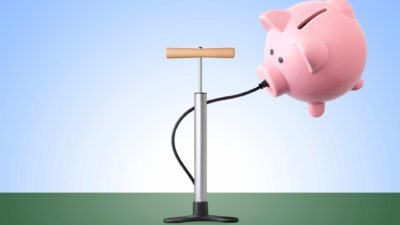Well, its official, we're technically in a recession for the first time in almost three decades.
Well, almost official. A recession is officially defined as two or more consecutive quarters of negative economic growth. We've only had one so far – the quarter ending 31 March. But since it's almost a certainty that the quarter ending 30 June will reveal a massive economic slowdown, we can pretty much say today that Australia is in a generational first of a recession.
But what does a recession really mean for S&P/ASX 200 Index (ASX: XJO) shares? And how can we survive one with our wealth intact? To this end, here are three tips:
1) Remember cash is king in a recession
The first thing you should think about as we enter this recession is the regal supremacy of cash. Not as an investment mind you – cash is still lousy at growing your wealth. But it's more important than ever to secure your cash and cash flow. Recessions are tragically a time when many Australians will be out of work. So I think it's imperative that we all ready our personal finances for a potential shock. All jobs are safe until they're not, and now is the time to hope for the best, but prepare for the worst.
So before you even think about investing during a recession, make sure you have a couple of months of living expenses saved up for that rainy day. Hopefully, the skies will stay clear for us all, but you will still want to have a raincoat in case it clouds over.
2) Don't let ASX 200 volatility get the better of you
Recessions and ASX bear markets can be a great time to invest in shares at cheap prices for the long-term. But many investors don't get to enjoy these opportunities because they do silly things with their investments amid the volatility that recessions can bring. Selling your shares at a loss, for example, is usually not a good idea in the midst of widespread market panic.
I personally have a rule of never selling in a bear market unless absolutely necessary – and I'm usually a net buyer of shares. This means that even if I had to sell off some shares in order to buy others, I would always try to avoid doing this in a bear market. So have a mental battle plan at the ready for what you might do with your shares in a recession-induced bear market. This will hopefully save you from making emotional decisions that cost you down the road.
3) Always remember there's light at the end of the tunnel
Although not recently, Australia and the wider global economy have gone through many recessions before. And you know what these recessions all had in common? They all eventually ran their course and were replaced by good times once again. Yes, this recession is different – we haven't had to deal with a pandemic like this for a hundred years. But all other recessions were 'different' too, and we eventually saw them off. I have full confidence that this time will, in fact, be no different.







